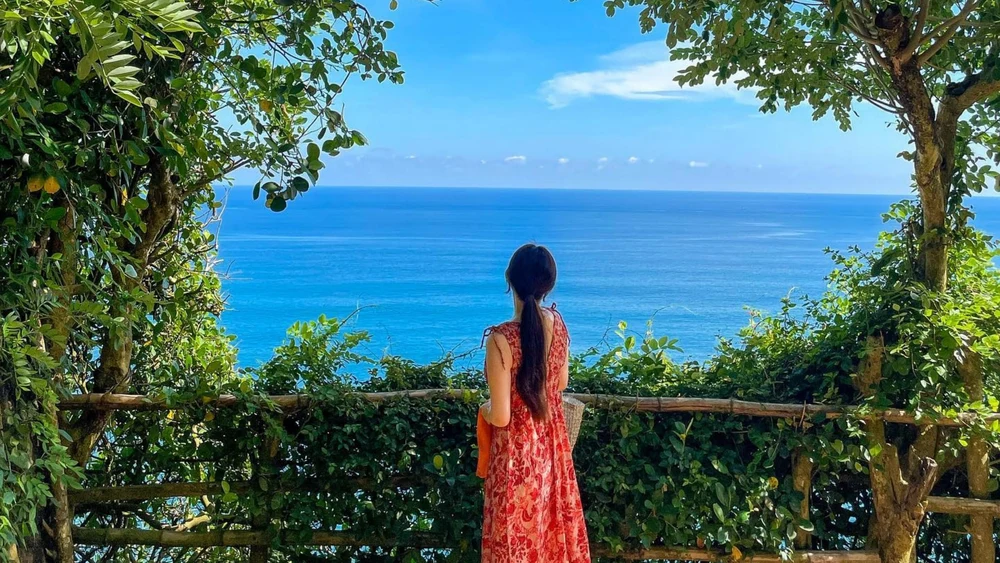
Is Bali Still a Safe Paradise? Uncovering the Hidden Risks
Bali’s Changing Safety: A Local’s Perspectiv
I am Balinese, and I have lived in Bali for 20 years. This is my first time writing in English, so I apologize for any grammar mistakes in this answer. I am open to suggestions and corrections.
The reasons why Bali is no longer as safe as it used to be are complex, but they largely stem from a combination of a limited job market and a significant influx of low-skilled internal migrants, particularly from East Nusa Tenggara (NTT). I want to clarify that my intention is not to generalize or offend anyone, especially my friends from NTT. This is simply my perspective based on common observations.
As we all know, Bali is one of the most popular tourist destinations, attracting millions of visitors, including many from within Indonesia. It is also one of the richest provinces, making it an attractive place to live and work. Many people from different parts of Indonesia, including Java, Madura, and West Nusa Tenggara, have moved here in search of better opportunities. This has led to increased competition for jobs and has also brought new challenges.

Over the years, the population surge has contributed to overcrowding, traffic congestion, and, unfortunately, a rise in crime rates. In the past, Bali was known for its safety—people could leave their motorbikes on the roadside with the keys still in them, and they would still be there when they returned. That is no longer the case, especially in areas like Badung and Denpasar, where vehicle theft has become more common.
When driving in Bali, reckless behavior on the roads or public disturbances involving alcohol-related fights are, more often than not, caused by either foreign tourists (such as Russians) or individuals struggling to find stable jobs.
In recent years, cases of theft, assault, and other crimes have become more frequent in Bali. Reports suggest that a significant portion of these incidents involve migrants from East Nusa Tenggara. This has led to growing tensions between the local Balinese community and migrant groups. Unfortunately, due to the actions of a few, many migrants face difficulties in securing housing, as landlords are increasingly hesitant to rent to them.
Most migrants from East Nusa Tenggara work in sectors such as online transportation and manual labor. However, breaking into Bali’s tourism-driven job market is challenging, as it requires specific skills that many do not possess. Furthermore, the competition within the sector is already fierce among Balinese locals.
In response to these challenges, the local government has implemented regulations to prioritize local workers, such as requiring vehicles used for tourism services to have Bali-issued license plates. Additionally, some communities have begun rejecting rental applications from migrants. While these measures are controversial, they reflect growing concerns over safety and economic competition.
Bali is currently at a turning point. The island remains a beautiful and vibrant place, but issues related to population growth, employment, and safety must be addressed to maintain its charm and security for both locals and visitors alike.
If these concerns don’t bother you, Bali remains a stunning destination worth exploring. Here’s some helpful info to make your trip even better.
Heading to Bali for the first time? For many travelers, Bali conjures up images of vibrant beach clubs, ice-cold Bintang beers, and endless sun-soaked adventures. You’re probably counting down the days until you hop on that flight to paradise! Before you dive in, here’s a list of practical Bali tips to help you make the most of your trip. By the time you’re done reading, you’ll be navigating Bali like a seasoned pro.
Pack Light, Stay Cool
Bali’s tropical climate is a constant, so expect to feel the heat no matter the season. The best time to visit is during the dry months from April to October, when the weather is perfect for beach days and exploring. Pack breezy clothes, flip-flops, and sandals to stay comfortable, and leave a little room in your suitcase for souvenirs like handmade crafts or batik prints.
Watch Out for Stray Animals
You’ll spot plenty of stray dogs roaming Bali’s streets. They might look friendly, but many carry rabies or other health risks, so it’s best to keep your distance. Want to help? Consider donating to the Bali Dog Refuge, which works to rescue and care for these pups.
Mosquitoes are another thing to watch for, especially at night or during the rainy season (October to March). Slather on high-DEET repellent before stepping outside to avoid itchy bites—or worse.
Learn a Few Local Words
No need to stress about language barriers—English is widely spoken in tourist hotspots. Still, picking up a bit of Balinese or Bahasa Indonesia can go a long way with locals. Try simple phrases like terima kasih or suksma (thank you), tolong (please), or apa kabar? (how are you?). It’s a small gesture that adds a fun twist to your trip.

Motorbikes and Grab Are Your Best Bets
Bali doesn’t have public transport, so renting a motorbike or scooter is a popular choice for getting around. Alternatively, book a ride through Grab or flag down a Bluebird taxi. Roads can be chaotic—think narrow lanes and unpredictable traffic—so plan extra travel time and pack motion sickness meds if winding rides get to you.
For a hassle-free arrival, pre-book a private airport transfer to whisk you straight to your destination.
Make Google Maps Your Travel Buddy
Exploring a new place can be tricky, and it’s easy to take a wrong turn or two. Save yourself the stress by relying on Google Maps to guide you. For seamless navigation, grab a 3G/4G prepaid SIM card at the airport—unlimited data will keep you connected wherever you roam.
Feel Like a Millionaire
Here’s a fun fact: $100 USD equals over 1.5 million Indonesian Rupiah! Exchanging your cash will leave your wallet stuffed. Stick to ATMs or money changers at the airport for the safest rates, and withdraw enough to last your trip—cash is king in many spots.
If you’d rather go cashless, a multi-currency card like WISE works, though not all cards support Rupiah yet. Quick tip: Indonesian ATMs dispense cash before returning your card, so don’t walk off too soon!
Tipping Isn’t Required, But It’s Appreciated
Tipping isn’t a big thing in Bali, but locals are always grateful for a little extra. If a restaurant doesn’t add a service charge (check the bill!), feel free to leave a small tip for great service. It’s a simple way to spread some goodwill.

Haggle with a Smile
Shopping in Bali’s markets can be a blast—think colorful sarongs, quirky antiques, and handmade jewelry. Prices are often inflated for tourists, so don’t shy away from bargaining. Keep it friendly, and you might even get a playful hint from the vendor about a fair price.
Save Big with a Klook Bali Pass
First-timers might feel overwhelmed by Bali’s endless attractions. Let the Klook Bali Pass simplify things—choose from spots like Waterbom Bali, Bali Zoo, Ayung River Rafting, or the iconic Bali Swing, all with fast-track entry. Add a car charter or a Nusa Penida tour for extra convenience. Less planning, more fun!
Look Beyond Kuta
Kuta’s nightlife and beaches get all the hype, but Bali’s real magic lies outside the tourist hub. Venture to hidden gems like Nusa Penida’s cliffs, Ubud’s rice fields, or Munduk’s waterfalls for a quieter, more authentic experience.
Beat the Crowds with Smart Timing
Want Bali’s top spots to yourself? Rise early and catch the sunrise at places like Tegalalang Rice Terraces. You’ll enjoy the views in peace before the tour buses roll in—and wrap up before the midday heat kicks in.
Stick to Bottled Water
To dodge the dreaded Bali Belly, skip the tap water entirely. Stick to bottled water for drinking, brushing your teeth, and even washing your face. It’s cheap and widely available, and most hotels provide free bottles—stock up when you can!